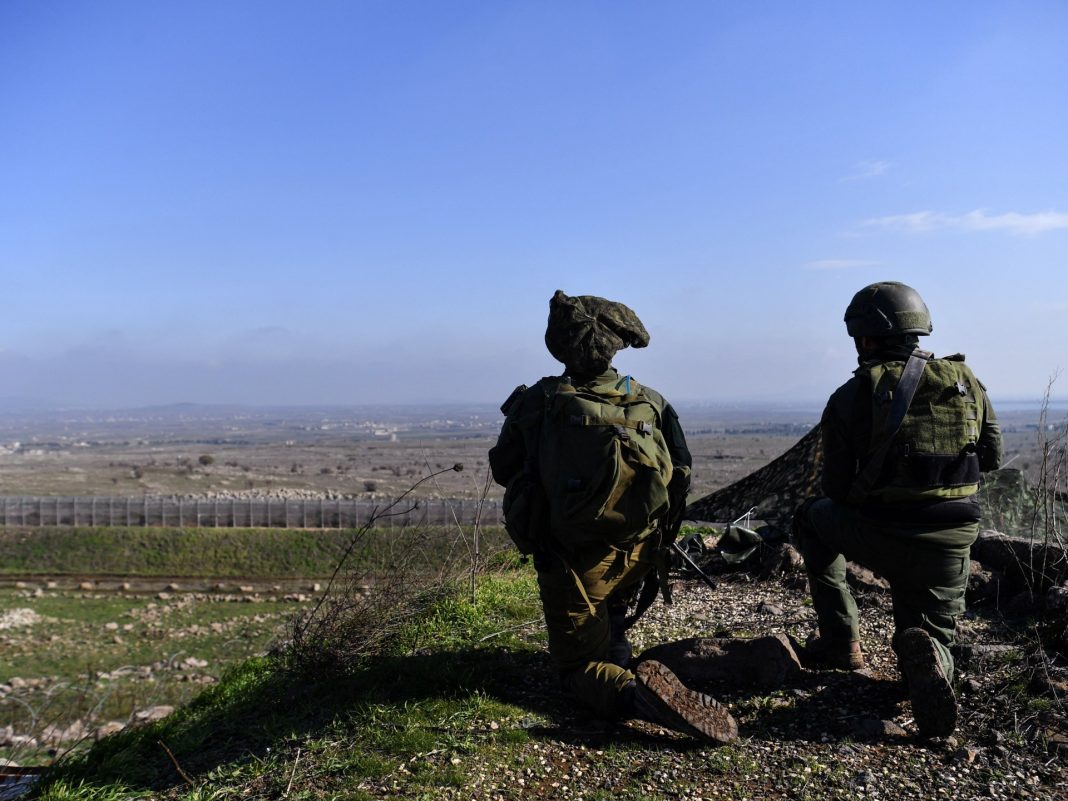As war in Gaza rages, Israel is continuing its campaign against Syrian military and Hezbollah targets, sparking fears of regional spillover.
Israel has launched attacks on positions in Syria and Lebanon, as part of its ongoing campaign against opposing militaries and armed forces in the Middle East.
“The [Israeli army] struck military infrastructure belonging to the Syrian Army,” the Israeli military said in a post on the social media platform X on Tuesday.
“[Israeli military] fighter jets also struck Hezbollah terrorist infrastructure in Lebanon,” it added, promising it would “continue to operate against any threat to Israel’s sovereignty”.
Israel’s military has been engaged in cross-border fighting with Hezbollah and has launched repeated air raids on Syria since its war on Gaza began on October 7, raising fears of the conflict spilling over into the wider region.
In response to yesterday’s launches toward Israeli territory, the IDF struck military infrastructure belonging to the Syrian Army.
IDF fighter jets also struck Hezbollah terrorist infrastructure in Lebanon.
The IDF will continue to operate against any threat to Israel’s… pic.twitter.com/xSty1eyMkb
— Israel Defense Forces (@IDF) January 2, 2024
The latest attacks, which occurred between Monday and Tuesday, marked a spike in tensions between Israel and neighbours it has said have links to its enemy, Iran.
Earlier on Tuesday, Syrian state news agency SANA said pre-dawn Israeli attacks came from the direction of the Golan Heights.
The air raids targeted “a number of sites in the Damascus countryside”, SANA reported, citing an unnamed military source as saying only “material damage” had been caused.
Britain-based war monitor the Syrian Observatory for Human Rights said that one position targeted near the town of Kanaker housed members from Lebanon’s Hezbollah, the AFP news agency reported.
Parts of the southern Lebanese city of Yaroun also came under fire, the Israeli military said on Tuesday, after Hezbollah announced it had fired on Israeli units near the northern Israeli village of Sarit.
Iran links
“What Israel is facing at the moment is fighters in various countries in the region that are mostly backed by Iran,” said Al Jazeera’s Sara Khairat, reporting from Tel Aviv on Tuesday.
Syria and Iran are regional allies, with President Bashar al-Assad having received staunch support from Tehran during the war in Syria. Since its formation in 1982, Iran-backed Hezbollah has grown into a powerful “state within a state” in Lebanon, and has also backed Hamas in Gaza.
“Of course the biggest threat so far has been from the Iranian-backed group Hezbollah in Lebanon that has been firing every single day,” Khairat said. “This is just showing that despite [Israel’s] continued war in Gaza, these attacks are going to continue.
“Certainly there has been a call amongst those in the [Israeli] military to start to look to redirect their efforts especially along that northern border, with Israel itself saying that if diplomatic efforts don’t work then it wouldn’t be afraid to consider other military action against Lebanon,” our correspondent added.
Tuesday’s attacks follow closely on the heels of an Israeli air raid near Aleppo at the end of December, which caused some material damage, according to the Syrian Ministry of Defence.
Since the Syrian war began, Israel has launched hundreds of air raids on Syrian territory, both on Syrian military and Hezbollah targets. Israel has repeatedly said it will not allow Iran to expand its presence in Syria.
In December, an Israeli air raid outside Damascus killed Razi Moussavi, a senior adviser in Iran’s Revolutionary Guard Corps (IRGC) responsible for coordinating the military alliance between Syria and Iran.
Reports from Iran’s news agency INRA said that Mousavi had been part of an entourage accompanying IRGC General Qassem Soleimani at Baghdad airport when he was killed by a US drone attack almost exactly four years ago.







